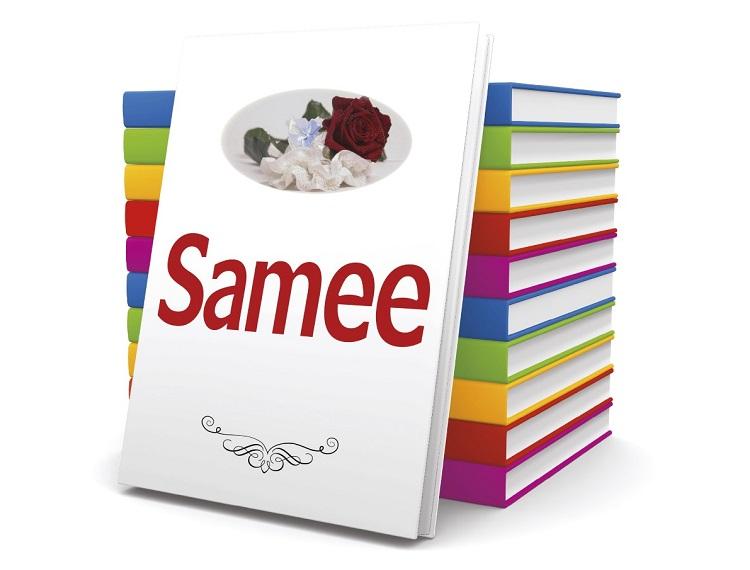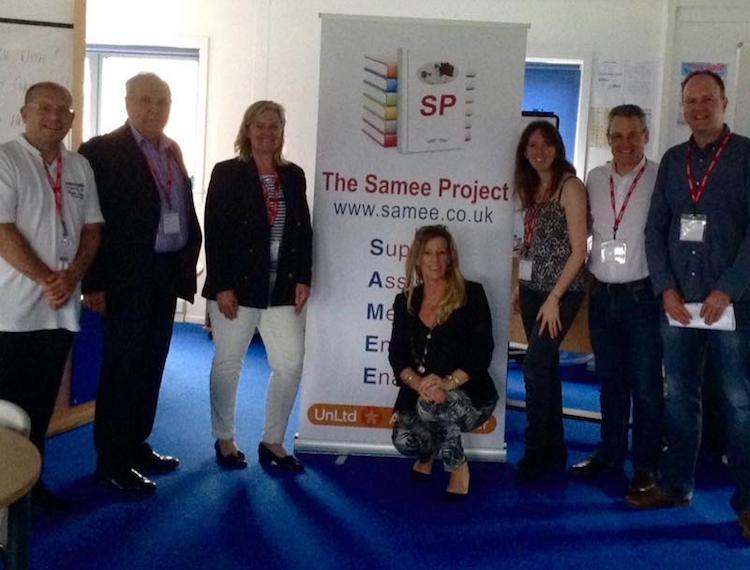Enterprising Young People Missing Out

An exciting new project aimed at promoting self-employment as a real career option for students is being piloted in Dorset.
Called the ‘Samee Project’, it was formed following a report from IPSE which states that, although young people are aware of the employment route and are taught employability skills to attain this, self-employment is seldom presented as a real option for students.
Project Founder Sam Everard AIEP said: “Careers staff and professionals in schools and colleges are asked to talk to students about what they would like to do following their exams, and the two main routes that are suggested are apprenticeships and higher education. This, unfortunately, does not take into account all the next steps of the journey for the student as they leave the “safety “of education including the option of self-employment.
“The report demonstrated that young people who have the skills or talent, or a career path that offers a self-employment route, do not have the information or knowledge to take it any further. With the changes in the way that businesses recruit staff and the project opportunities that are available, there are more people becoming self-employed and working freelance, which is why it is important to raise the visibility of self-employment. This problem affects all young people as there are self-employed people coming from an increasing number of sectors, alongside the traditional vocational type of courses (for example construction). There are now a high number of self-employed graduates working in freelance artistic, media and creative industries jobs.”
There is also a need for young people to understand the difference between being an entrepreneur/starting a small business and having a self-employed contract. Some students may say that they do not want to have their own business and will not want to take that route but they may find themselves in a few years’ time having a freelance / consultancy contract, needing to be self-employed at that point and understanding the responsibilities that go alongside this is of the greatest importance.
“We are finding, through research, that self-employed people have less technical support and guidance than those running a traditional ‘business’, as they are seen to be not interested in growth, employing others or trading nationally/internationally, they just want to receive enough income to sustain their lifestyle, as any similarly employed person would” said Sam. “It is the difference between having a cash flow for the business and a personal survival budget for the family. By raising awareness at an earlier age, students will have the basic knowledge and understanding of the pros and cons of self-employment, and will be better prepared. This will ensure that they know about paperwork, bookkeeping and tax returns, as well as being properly insured, putting them in a better position for the future.”
IPSE demonstrates that, out of 1143 ‘freelancers’ surveyed, just 1% found out about self-employment through information provided at school/college and 2% found out about it at University. This is a major concern as students and young people need to have an awareness of all their employment and career options and self-employed contract work needs to be discussed as early as possible.
There are many pros to being self-employed and undertaking freelance/contract work as it meets the needs and requirements of many people, who may not be able to have a full-time employed position due to learning style, personal circumstance or maybe even a disability. These students are normally those that are disruptive within the school environment as their perception is that they cannot meet the goals and standards set by the school system, so it does not matter if they turn up or engage whilst they are there.
By identifying a route that may be really possible for them, they will start to look at the skills and talents they do have and can build on those strengths. This could lead them to feeling more positive and engaging in a meaningful way with education.
Sam is passionate about what the Samee Project can achieve, “This work in schools is being piloted in Dorset but we would love to take it further afield. We can see how many young people are disengaged with education and they may be able to think about a skill or talent they could develop for employment in a different way. I met a young guy recently that told me he had no future as he could not read or write properly and the school were giving up on him. Imagine my surprise when he showed me some of the photos he had taken – they are award winning! I have put him in touch with a colleague of mine and they are going to help him develop a small self-employed income to enhance his chances in life and at the same time learning new skills for a possible future self-employed career. He can now see that reading and writing would be beneficial to him as he can invoice, write articles about his work etc. He is only 14!”
Sam highlighted other examples of where Samee has helped, “A University graduate I met who really needs to be self-employed is converting her hobby into income as her main job does not pay enough to cover her rent and bills, even though she has a degree. She is struggling to survive and is now creating wall hangings as a way to boost her income. We spent a few hours working through how self-employment works alongside her main job and she made the point that she wished she had been taught this earlier as it would have made a huge difference to her as she would not have been so scared about making the change.
“A young man wanting to become a self-employed plasterer had already lined up his apprenticeship. He spent time with us talking about tax, getting work and how to sell himself. He too wished that he had been talked to at school as he, and some of his friends, had not been made aware of what being self-employed actually meant. He just knew it was his best way forward, based on what he had heard whilst on work experience, but had no idea how to go about it or what it involved.”
 The young people with a trade, skill or talent, and those that want to do freelance and contract work, need to be nurtured and given the knowledge, information and support early so that they can start to plan what they want to do, think about their money and develop the skills needed to ensure success. The employability skills are the same as for a paid role, but the work that needs to be done around self-employment is very different.”
The young people with a trade, skill or talent, and those that want to do freelance and contract work, need to be nurtured and given the knowledge, information and support early so that they can start to plan what they want to do, think about their money and develop the skills needed to ensure success. The employability skills are the same as for a paid role, but the work that needs to be done around self-employment is very different.”
By giving every year 11 student access to self-employment information, as schools already do with career fairs, apprenticeship fairs and further/higher education events for ‘traditonal’ employment routes, they can engage with students and help them to make an informed decision, research possibilities and have the opportunity to ask questions about the many opportunities available to them through choosing self-employment as an option. This is a real option for all students and in the ‘gig economy’ it has to be an opportunity that is presented at an early stage of career development.











Responses